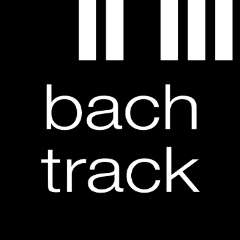I can’t help it: Gareth Malone’s series of ‘music for the masses by numbers’ programmes drives me nuts. I feel bad about this, because I can see that the programmes perform a valuable service: bringing classical music to a wider audience, and filling people with enthusiasm for singing and for music.
Malone is about to feature in a new series, Gareth Malone goes to Glyndebourne, following his efforts as he led a group of singers from schools and college across East Sussex, as they spent a year preparing to perform an opera at Glyndebourne back in March.
In 2006, he took a group of children from a comprehensive school, Northolt School in Middlesex, to the World Choir competition in China in a three-part series, The Choir. Two years later was the follow-up The Choir: Boy’s Don’t Sing, in which Malone led a 100-strong choir from an all-boy’s state school in Lancashire as they performed in the Music for Youth Schools Prom at the Royal Albert Hall. The series won a BAFTA award. And last year was The Choir: Unsung Town, in which the Hertfordshire town of South Oxhey received a cultural make-over in the form of a community choir which is still going strong.
This is all life-affirming stuff: hip-hop kids who think singing is uncool, shy wallflowers who find their confidence in singing in front of large audiences, children with difficult domestic lives, all of whom discover the power of music-making and are moved to tears by the experience of communal singing. Music is used to bring divided communities together, to inject a renewed sense of self-worth into areas that are socially and economically depressed. People who have never heard or performed classical music, or undergone the power of singing with a choir, find a new experience and a new richness to their lives. And it’s fantastic to watch the transformation some of them undergo, moving from disaffected by-stander to someone fully engaged with singing and totally committed to the final performance. What upsets me, though, is the sense that this might all be being done for television, not for the Greater Good. If there had been no more than the first series, I wouldn’t have a problem. But with each series, there’s a sense of the programmes running to a formula (a successful one, though, I grant you), of ‘cultural education by numbers.’
If classical music and music education weren’t so important to me, I wouldn’t mind the repetition of these series – but they are. Bringing music to audiences and communities, to children and adults, is far more important than the recycling of a process, simply because it makes for good television. Whilst I think Malone does a fantastic job with his charges each time, I do wonder if the impetus is televisual rather than educational anymore, if the desire to bring music to those who’ve not experienced it has been ousted by the desire to capitalise on the show’s success.
Anything which showcases the benefits of music, of community choral singing, can only be a good thing. As long as it’s done from a genuine desire to crusade for music’s strengths, rather than television’s viewing figures.
Dan Harding 16th June 2010
Dan is the Deputy Director of Music at the University of Kent. He writes about music on the departmental blog, ‘Music Matters.’


